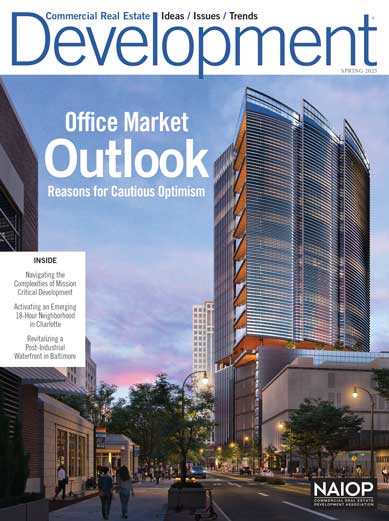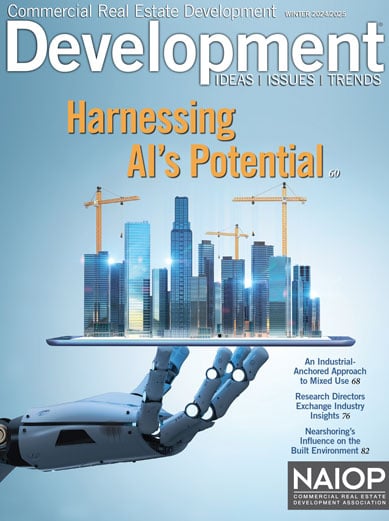Beyond 72 Degrees and Sunny Inside: Optimizing the Indoor Work Environment
The conversation about indoor environments is changing as tenants leverage new technologies to support employee productivity.
Food halls offer small-scale opportunities for landlords, operators, chefs and diners.
The conversation about indoor environments is changing as tenants leverage new technologies to support employee productivity.
A Timeline of Key Industry and Advocacy Events
A comparison of these two North American industrial markets offers some interesting insights.
Screens that provide real-time transit and other transportation information have become an amenity valued by office and residential tenants.
Transportation infrastructure can have dramatic effects on the value of commercial real estate.
NAIOP celebrates 50 years of advocacy, education and professional excellence.
Flagship stores enable retailers to create a physical embodiment of a brand through design and spectacle — and to experiment with new concepts and technologies.
A real estate model originally designed to meet the needs of startups and freelancers is customized for the health and beauty industry.
Living wall systems can be simpler to install and maintain than one might expect — and can have meaningful impacts on building owners and occupants.
 Summer 2025 Issue
Summer 2025 Issue
Development’s summer 2025 issue explores experiential retail and the brick-and-mortar resurgence. Also featured: a modern warehouse campus in Toronto that honors its manufacturing heritage; a coalition of Oregon real estate organizations working to revitalize downtown Portland; and the creative capital stack strategy behind a mixed-use project in West Baltimore.
 Spring 2025 Issue
Spring 2025 Issue
The spring 2025 issue offers insights about where the office market might be heading over the coming year, explores the complexities of mission critical development, and provides detailed looks at two transformative mixed-use projects: The Bowl at Ballantyne in Charlotte and Baltimore Peninsula in Maryland.
 Winter 2024/2025 Issue
Winter 2024/2025 Issue
Development magazine’s winter issue delves into the evolving uses of artificial intelligence in the commercial real estate industry, from lease management and building operations to portfolio assessment and data analysis.
